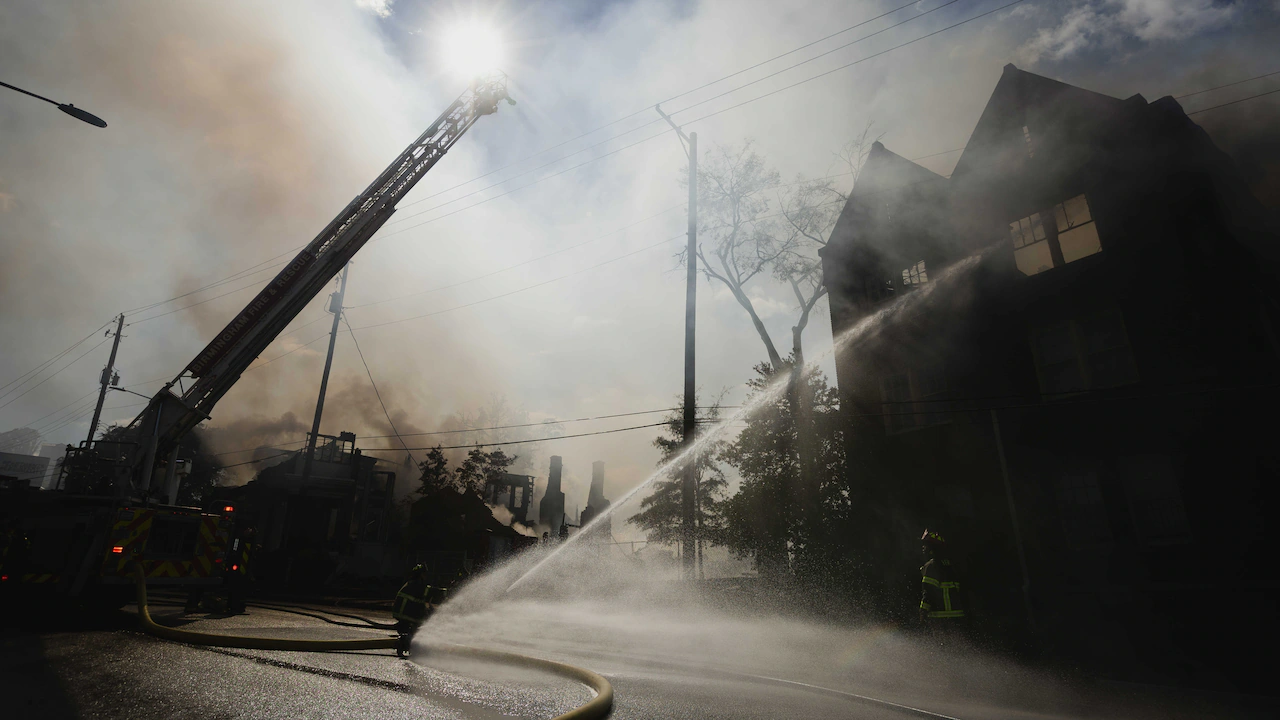Copyright Forbes

As teams sprint toward year-end goals, stress levels surge, patience thins and small miscommunications can quickly snowball into full-blown conflict. Google searches for ‘how to handle conflict at work’ have gone up +126%, showing how emotionally exhausted and reactive people are as deadlines close in. During the holidays as stress rises, experts offer actionable ways on how to mitigate holiday tension. ’Tis The Season For Rising Holiday Tension According to the American Psychological Association, 41% of Americans say their stress increases during the holiday season. There are numerous reasons for the rising tension. Layoff anxieties are testing employees’ mental health more than ever, and winter can make the strain even heavier. The combination of reduced daylight, colder weather and real-world stressors turns this season into a defining tipping point for mental health. 1. "Career Hibernation” Some employees have a shift in energy as the days get shorter and the temperature drops, finding it harder to work, losing their motivation and finding even simple tasks more taxing. Some, five percent of U.S. adults suffer from a psychological disorder known as seasonal affective disorder. But the emotional dip in winter is even greater for other employees. Resume.ai recently ran a survey of over 1,000 full-time office workers in the United States and showed that this isn’t just a feeling but a real blockage for many, revealing a pattern of “career hibernation.” This phenomenon is particularly noticeable in larger companies, where the focus moves from hitting KPIs to simply “getting through the day.” The winter months impact focus, plus 42.2% of workers in the study report elevated anxiety, while 15.5% are plagued with extreme anxiety. Gen X (43.7%) and Millennials (43.2%) are the most affected by seasonal anxiety, while Gen Z (11.5%) experiences a much lower impact. In times of job uncertainty, those feelings can escalate drastically. MORE FOR YOU 2. Holiday Social invitations New research from the University of Georgia highlights the stress social invites can have on workers. Even “happy hour” with co-workers can be a double-edged sword. But it depends on the person, according to the study. The study finds that if you’re an extrovert, it’s more likely you will feel good about yourself and your workplace when you get after-work invites. If you’re more reserved, it can become more withdrawn and stressed when invited. In the study, employees who anticipated added pressure to perform socially after work also became more anxious, regardless of if they accepted the invite, causing them to be tense and unproductive at work in that waiting period. “We always think that social activity is so great, right? If you’re social with your co-workers, you feel energized and connected. But those invitations are not necessarily always good,” says Joanna Lin, author of the study and a Professor of Management in the University of Georgia Terry College of Business. “There’s a social pressure that makes people feel like they have to say yes and need to be there. These outings seem like an obligation, even if they’re supposed to just be something fun.” 3. Year-end tensions. Year-end tension is boiling over between mounting workloads, budget pressure and pre-holiday stress, many teams are running on fumes. This is also the time of year that many employees are thinking about performance reviews, and that can bring anxiety, frustration and dread because the spotlight is on you. Anxiety can interfere with a good performance review. If you’re trembling at the thought of an upcoming review, the first step is to find tools to help you lower your anxiety before a year-end review. 4. Layoff anxieties As holiday hiring hits its peak, Monster’s Seasonal Hiring Index 2025 reveals that searches for “seasonal jobs” tripled in October as workers chase flexible, fast-start opportunities across retail, logistics, customer service and accounting. Major layoffs and job insecurity are accelerating since Amazon’s announcement of 14,000 layoffs. Worker anxiety about job stability is intensifying as federal employees face cuts and the government shutdown stretches past three weeks. 5 Tips To Handle Rising Holiday Tension Jaime Bronstein, resident expert at Dating.com, shares five simple psychology hacks that instantly defuse tension and build empathy. 1. Switch seats, switch perspective. In couples therapy, there’s a helpful practice called the ‘empty chair’: switch places with the other person (literally sit in their chair) and restate their point as if you were them. "This isn’t just for couples, Bronstein asserts. “Feel free to try this with your friends or colleagues. And don’t worry about feeling awkward. This practice is immensely healing and brings a wealth of insight forward, allowing your relationship to improve. You actually signal high EQ by showing empathy in action.” 2. Focus on the pattern. Bronstein recommends instead of saying, "You always interrupt me," try: "We have a pattern of interruption." She explains that by depersonalizing conflict, you will reduce defensiveness, and both sides will feel as if they’re allies against the problem, rather than enemies against each other. Regardless of the situation, she insists it’s best to avoid using “always” and “never,” as the other person may become defensive. 3. Apply the 90-second rule. Brain science suggests that the body’s chemical reaction (such as anger) lasts about 90 seconds, unless you continue to fuel it with your thoughts. Anytime conflict ignites, Bronstein encourages you to set a timer. “For 90 seconds, just notice the feeling. Usually, the wave passes, allowing room for a calmer exchange. Being aware of your feelings is a game-changer.” 4. Use the “third-person hack.” When your emotions are running high, try switching your self-talk to the third person. As an example, instead of saying “I can’t believe this is happening,” Bronstein suggests that you say “Sarah is frustrated right now, but she can deal with it.” Research shows that "distanced self-talk" reduces stress, enhances emotion regulation and allows you to sound calmer when speaking during a conflict. “Maintaining space between you and your frustration can help you achieve a less heightened emotional state.” 5. Flip the “what if” When stuck in blame, Bronstein advises that you ask: “What if the opposite were true?” For example, if you’re convinced your colleague “doesn’t respect you,” she says you can test the opposite: “What if they do respect me, but are under pressure?” You never know what is going on in someone’s life, she acknowledges, so having compassion and avoiding assumptions can be helpful. A CBT re-framing also can take the charge out of a situation and create an alternative approach, she says. A Final Takeaway On Rising Holiday Tension Amanda Augustine, professional career coach at Resume.ai, explains that a drop in motivation is a natural body phenomenon. It’s your body signaling a need to rest and recalibrate, not laziness or a lack of ambition. When you combine social anxiety, winter blues, layoff anxiety and year-end exhaustion, no wonder there’s rising holiday tension, and that even the most driven employee can feel like a Grinch. “With awareness and small adjustments in everyday habits, like sleeping on time, eating healthier and keeping a positive atmosphere in the workplace, professionals can turn this slowdown into a period of renewal and return to work more focused and balanced,” Augustine concludes.



